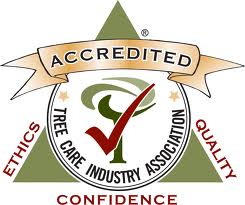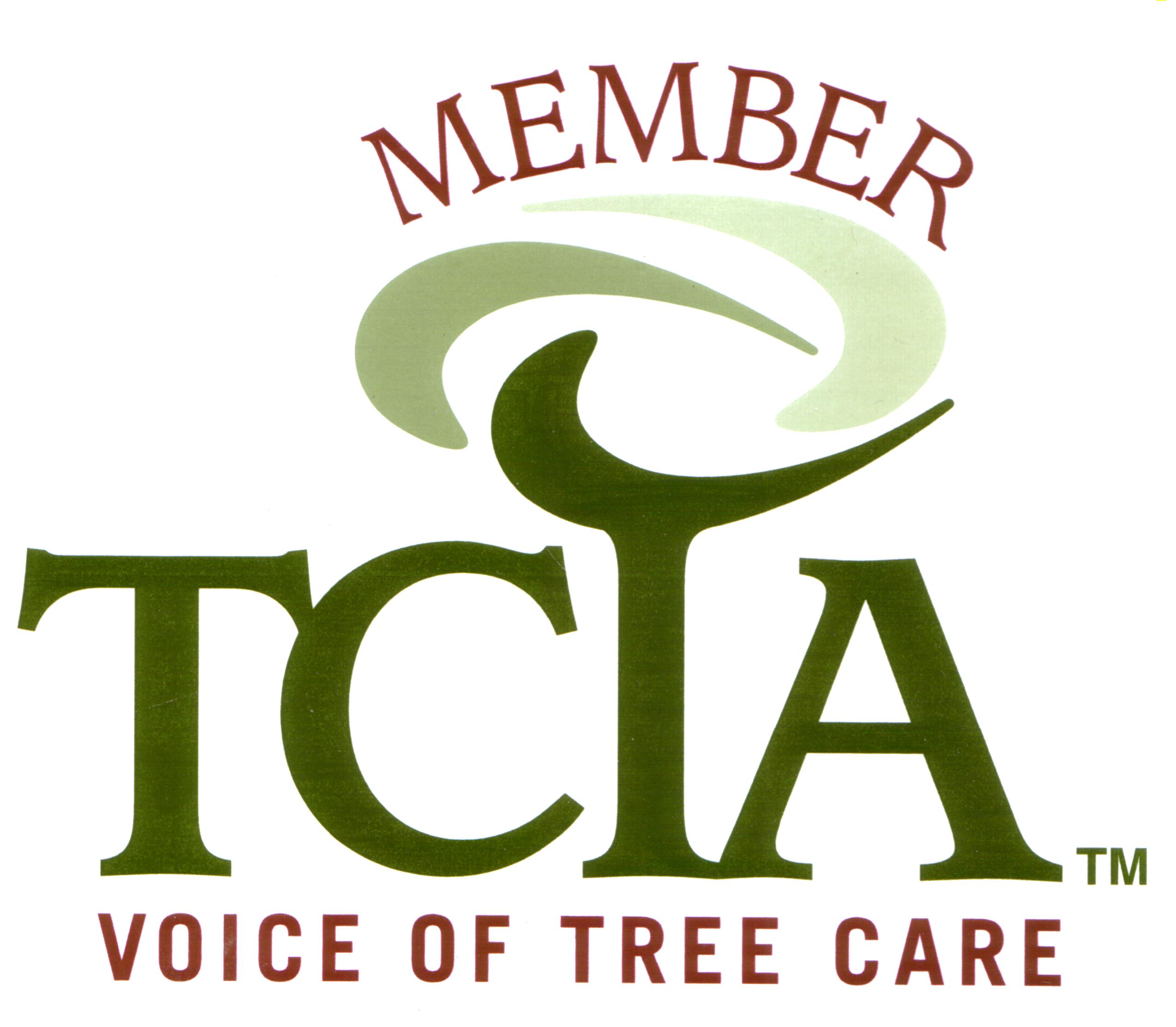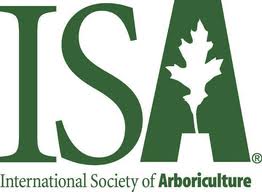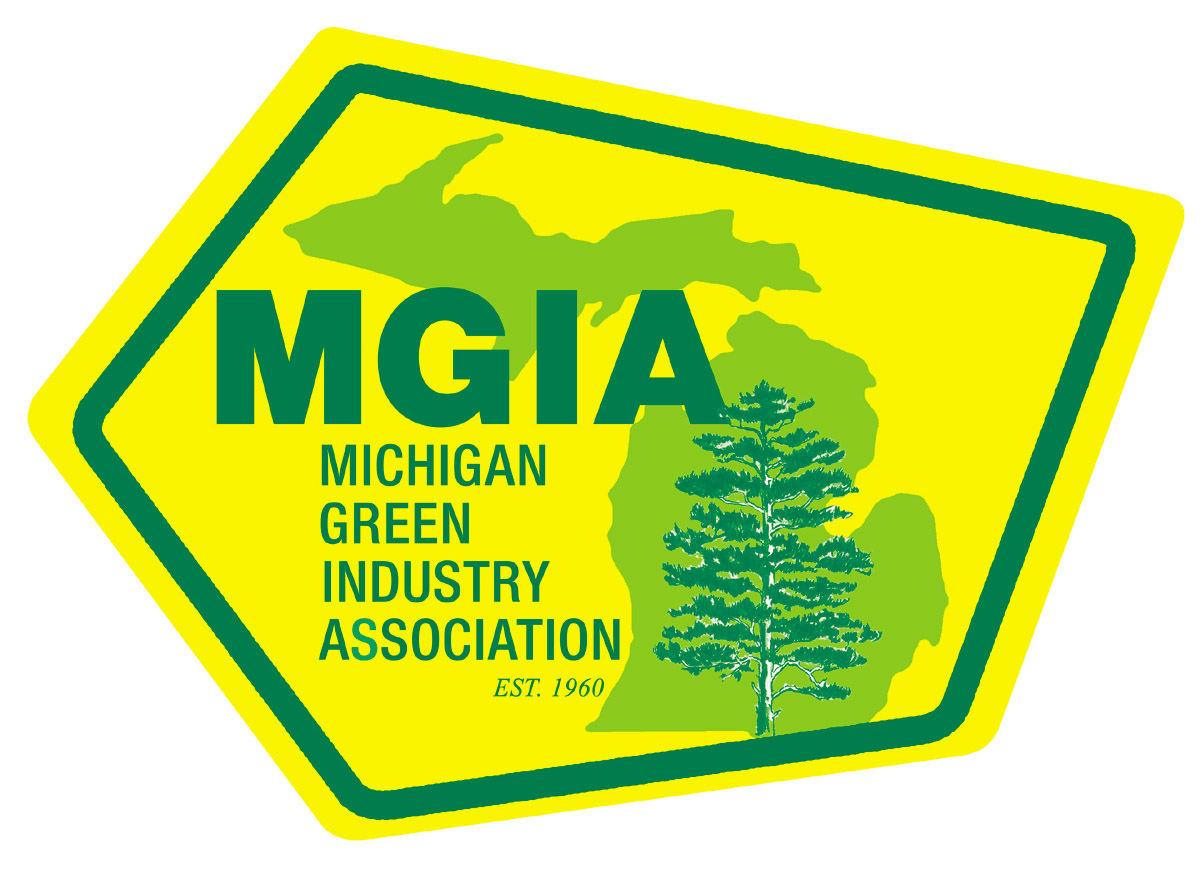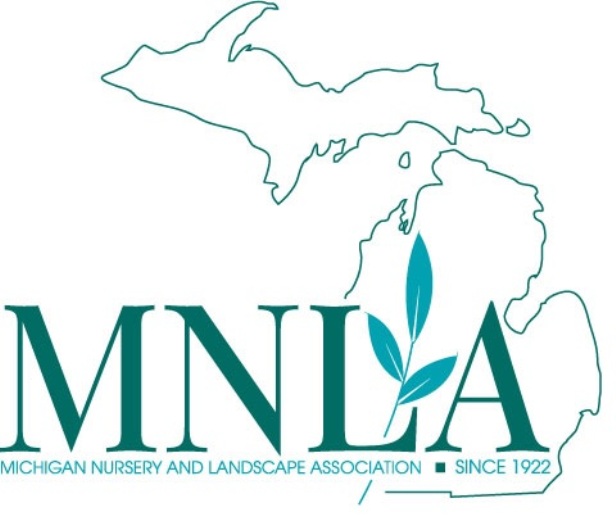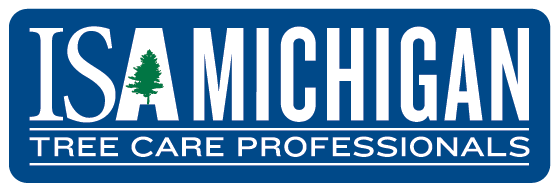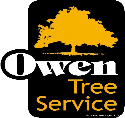Plant Health Pays Off
By Felicia Gillham, Managing Editor
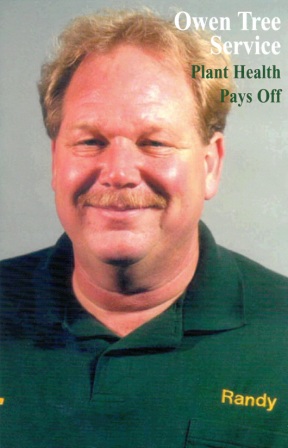
It was 1989 and Randy Owen was disillusioned. It was his 15th year as a utility arborist and he no longer liked his work. In an effort to limit costs, his utility was cutting back on customer service. One day Owen questioned power company officials’ instructions to make procedure changes that would shock homeowners. “What do we tell the customers?” Owen and his crew asked. The supervisor’s response mirrored the utility’s philosophy at the time: “I don’t care what you tell them. Tell ‘em whatever you have to to get the job done.” A few months later, Owen was gone.
He put up his own shingle. Using his savings, Owen purchased some basic equipment and founded Owen Tree Service in the northern suburbs of Detroit, MI. In ten short years, he’s grown the company to 60 employees, a full fleet of trucks and $2.5 million in sales.
There are a number of reasons why he’s been successful, Owen believes. There are the usual reasons: Owen has worked hard, he charges a fair price and from the first day he has offered a money-back guarantee. “I didn’t want to take advantage of people,” Owen says. The company
has also prospered by what Owen calls his “mind-thought” or philosophy that solidified in his mind the last year of his utility experience. Owen insists that his business be operated with integrity. He wants only employees who care about what they do, and he requires that customers are kept educated and informed about the company’s work.
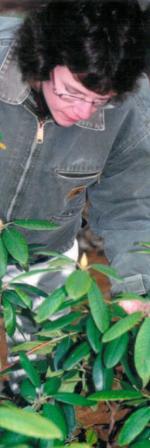
Owen admits there’s an almost spiritual tone about how he directs and operates Owen Tree Service. Essentially, he believes that by “doing the right thing,” customers and a fair profit will follow. But at the foundation of the business, what has sustained it through the years, is the science of tree health. Owen is often heard telling his customers, “I’m working for the trees, and you’re the one that has to pay me.”
As a utility arborist, Owen was stimulated by the questions of how trees grow, what prompts their death, and how they can become stressed by pests and disease. He wanted knowledge, so he began taking correspondence courses. This interest in the nitty-gritty of arboriculture continues today. Owen Tree Service invests thousands of dollars each year in seminars, workshops and conferences for the majority of its employees.
Interest in tree science coupled with the drive to “do the right thing,” created a strong need in Owen to concentrate on tree health and soil productivity. Tree removals and pruning were the bread-and-butter of the business at first, but the repeat business which provides steady cash flow, instead lies with tree maintenance. For many of Owen’s competitors, maintenance consists of annual pesticide sprays and fertilization dictated by the companies’ schedules and their need for income rather than a specific tree’s needs.
Owen believes differently. He puts the tree and environmental needs first. He was one of the industry’s first believers in Integrated Pest Management (IPM), an agricultural concept that requires the monitoring of plants for pests and the use of non-invasive pesticides, whenever possible, only when or if pest populations reach economically damaging levels. But IPM, Owen found, is difficult to implement in urban settings, such as back yards.

In the early 1990's, the International Society of Arboriculture (ISA) and National Arborist Association (NAA) developed a management practice that perfectly fit Owen’s philosophy, and especially he believes, the needs of trees. Called the Plant Health Care Management System, it is a systematic approach that protects and enhances plant health. That’s the formal working. In practice, it’s a preventative approach based on the idea that healthy trees and plants have a natural ability to fend off most of the stresses and damage that pests and the environment can throw at them. When a tree is unhealthy or stressed, it needs intervention in the form of chemical treatments and added water and soil fertility. Intervention drives up costs, requires labor, equipment and supplies, and in the end would be largely unnecessary if the health of the tree had been accounted for before the plant got into trouble.
Owen embraced the plant Health Care management System and put its precepts to work. In January 1996, Owen hired Kay Sicheneder to manage his newly created Plant Health Care Division. Sicheneder, with a master’s degree from the University of Michigan with a focus on IPM, had previously worked under John Holmes at American Tree Care in Long Island, NY – the first company to implement IPM in the landscape.
When Owen and Sicheneder first met, they sat down and talked. “I thought, oh boy, this guy knows what he’s doing,” she says. “Randy was doing his own version of Plant Health Care, which I thought was a really good step towards what I was doing in New York. Don’t forget, New York is ahead of us in everything. When I got here, Randy had all the concepts and the implementation was on its way. It just needed to be tweaked.”
At the core of the Plant Health Care Division business are the “fertilizations,” which bring in repeat business and have become the most profitable of their tree jobs. Both Owen and Sicheneder believe that productive, microorganism-rich soils that nurture healthy root growth are the first and most enduring key to tree health. Sadly, Sicheneder says, northern Detroit soils are “horrific.” “My soils are very heavy clays,” she says. “Oftentimes the soils are stripped down to the sub-soil. You need a pickaxe to plant a gallon-pot perennial in these soils.” On the plus side, the soils are mineral rich.

Still, Sicheneder surprises her peers at conferences when she admits that her fertilizations are not made of common N-P-K balanced fertilizer. “I don’t need it,” she says, “and with my soils, they would be a waste of time. I’ve got more nutrients than I know what to do with. I just have to get the soils to release them so roots can absorb them.”
To improve the soils of their clients, Owen Tree Service features six different regimes or “goos” devised by Sicheneder of primarily naturally based products. Her basic “goo” is Yuccah™, a product based on the extract of the Yucca schidigera plant. Yuccah is a natural soil conditioner and wetting agent. Her “goo” also includes BioPak™, a product that contains biostimulants and rhizosphere (the area surrounding the roots of plants) bacteria. BioPak is used to stimulate root growth and to reestablish microbial activity in the soil, which gets the biological processes going to release nutrients for plant use. [Both Yuccah and BioPak are products from Plant Health Care, Inc., the publisher of this magazine.] The final ingredient in Sicheneder’s brew is both slow- and quick-release nitrogen.
Sicheneder varies her mixtures according to the job. She adds root stimulants and humic acids to the basic goo for new plantings. For very compacted soils or soils with poor drainage, she increases the amount of Yuccah in the mix. She adds MycorTree™ mycorrhizal fungal inoculants [also from Plant Health Care, Inc.] for plants that are stressed by construction damage. “In these cases, we feel mycorrhizae have been stripped off the roots when the soil was forced off the top. We want to put them back, because they are critical for root function.”
Sicheneder’s soil mixtures and other plant health needs are called into action after a contract is sold by Owen Tree Service area representatives. These are highly intelligent, extremely knowledgeable sales people, Sicheneder says. They meet with prospective customers, educate them about tree health, assess and monitor the trees and plants on the site, and develop then sell the work contracts.
Dependent upon the work required, Sicheneder then deploys the employees, the equipment and the supplies needed from her fleet of 10 Plant Health Care trucks. She has two large 1,600 gallon fertilizer trucks and four smaller spray trucks with mini-tanks (for the tailor-made soil mixtures) and fertilizer rigs, so liquid fertilizations can be kept separate from pesticide treatments to alleviate the potential for tank contamination. Sicheneder also has four small spray rigs that carry anywhere from one to three tanks. “The important part of these spray rigs are the multiple tanks, so I can mix what I need. I don’t have to make a big soup to dump on everything. That’s important from a legal standpoint, but most important to me is to not put on anything that I don’t need. That just disrupts the system unnecessarily.”
Each truck in the fleet is outfitted with a chemical box that contains sulfur, BioPak™ and the other materials “so they can take the kitchen with them,” Sicheneder says. Hand-held equipment, such as Kioritz® soil injectors, Wedgle® and Mauget® injectors, mist-blower and regular backpacks, are put on the trucks “in case we get that one odd thing you’ve got to do,” she says.
The fertilizations represent the largest growing sector of the Owen Tree Service business. This is true even though Sicheneder’s fertilizer mixtures cost the company 30-plus cents a gallon. Most other tree care companies in their area produce fertilizer mixtures that cost 2 to 4 cents per gallon.
The reason the Owen Tree Service fertilizations are profitable, Sicheneder says, is three-fold. First, the overhead is not as high as other tasks, such as pruning. Although the input costs (the products) run higher than those of the competitors, fertilizations only require one man and one truck. The labor for fertilization is cheaper than the crew needed for pruning. Second, properly maintained soils result in improved root growth and function for the plants under Sicheneder’s care. That means healthier plants that require less repeat maintenance. Thirdly, of course, is the repeat business brought in by happy, satisfied customers.
“Repeat business is real important for generating revenue,” Sicheneder says. “We’ve got to keep our good customers happy, and sometimes all they need is some education.”
In the past, customer satisfaction in tree care was easy. You cut down a tree and haul it away. The customer sees that the job is done, and done well, and they are happy. But making customers pleased with fertilizations, soil conditioning, or plant monitoring takes extra effort in the education department. Sicheneder and Owen both strongly feel that customers cannot see value in the work the company does if they don’t understand and believe in its efforts.
“A lot of education is explaining what is possible, what is practical and when to let it go,” Sicheneder says. Like their area representatives, she walks the properties with the customers and teaches them about the biology of their trees. She works to turn around any of the misconceptions her customers may have. Sicheneder tells clients that to treat a tree is not to “blow chemical on it. That’s my big message. To treat a tree is to know what it is doing, watch it, monitor it, and treat it if necessary, when necessary.” To supplement what she says and to add credibility to her message, Sicheneder, as well as sales representatives, hands out brochures produced by the ISA, the NAA and her own company.
In educating their customers about what they do, Sicheneder and Owen are following a major component of the Plant Health Care Management System. They are pleased with the results they are generating. The plants under their care are healthier, and the business is growing with customers who return for the high quality product and service. In educating their customers about what they do, Sicheneder and Owen are following a major component of the Plant Health Care Management System. They are pleased with the results they are generating. The plants under their care are healthier, and the business is growing with customers who return for the high quality product and service.
There is a major problem, however, in implementing the management system. Owen Tree Service, like other horticulture-based companies, has trouble finding good people. Sicheneder says their demand for qualified personnel is even higher than other companies, because they must have employees that can understand, appreciate and follow their less-common approach. Applicators are particularly difficult to find. Because Owen Tree Service extensively trains and educates its personnel, once their applicators gain knowledge about tree health, they would prefer to move into sales positions. “It takes a long time to find that special person that wants to be an applicator,” Sicheneder says. “We’ve kept those we found, but we just haven’t found enough. I know I’m limiting our salesmen somewhat with my personnel problems, but we’re working on it.”
Owen says, “We’ve worked really hard to find good people and I believe they in turn radiate good people. Yes, we still go through a lot of employees, but every once in awhile you get one that meets that standard of saying ‘jeeze, I want to be really proud of what I do.’ The people who care – who want to make the environment better – end up staying.
“I want all the staff to feel that way,” Owen says. “A lot of people talk a good schtick, but what separates them out after awhile is whether or not they can act it out. A lot of our guys, they’ll tell you that they’re making an impact on the environment that’s good. They believe in what they are doing. If they ever have any questions or don’t believe something is right, they can stop right what they’re doing. By my rules, they don’t have to do it until they are convinced and believe in it.”
“Doing things the right way” prompted Owen to leave his local utility job. It allowed him to build a successful business that provides products and services for which he and his employees are proud. Doing things the right way, he says, has produced healthier trees and an improved environment, all under his care. “It is a moral issue,” Owen says, “but it should be the heart of our industry.”
CONTACT OWEN TREE AT:
● Leonard
Owen Tree Service provides tree, lawn, and landscape services to the following cities and towns:
Genesee County, Michigan:
● Burton
● Davison
● Flushing
● Goodrich
● Linden
● Otisville
● Clio
● Fenton
● Gaines
● Grand Blanc
● Montrose
● Otter Lake
● Flint
● Genesee
● Lennon
● Mt Morris
● Swartz Creek
Lapeer County, Michigan:
● Almont
● Brown City
● Columbiaville
● Imlay City
● Metamora
● Peck
● Attica
● Clifford
● Dryden
● Lapeer
● North Branch
● Sandusky
● Hadley
● Mayville
● Otter Lake
● Silverwood
Macomb County, Michigan:
● Armada
● Clinton Twp
● Grosse Pointe
● Macomb
● New Haven
● St Clair Shores
● Centerline
● Detroit
● Grosse Pointe Farms
● Ray
● Sterling Heights
● Chesterfield
● Eastpointe
● Grosse Pointe Shores
● Memphis
● Romeo
● Utica
● Clinton
● Fraser
● Grosse Pointe Woods
● Mt Clemens
● Roseville
● Warren
● Harrison Twp
● New Baltimore
● Shelby Twp
● Washington
Oakland County, Michigan:
● Auburn Hills
● Bloomfield Village
● Ferndale
● Orion
● South Lyon
● Berkley
● Clarkston
● Franklin
● Madison Heights
● Ortonville
● Southfield
● Beverly Hills
● Clawson
● Hazel Park
● Milford
● Oxford
● Troy
● Bingham Farms
● Commerce Twp
● Highland
● Novi
● Pleasant Ridge
● Walled Lake
● Birmingham
● Davisburg
● Holly
● Oak Park
● Pontiac
● Waterford
● Bloomfield
● Detroit
● Huntington Woods
● Oakland
● Rochester
● West Bloomfield
● Bloomfield Hills
● Farmington
● Lake Orion
● Oakland Twp
● Rochester Hills
● White Lake
● Farmington Hills
● Lathrup Village
● Orchard Lake
● Royal Oak
● Wixom
St. Clair County, Michigan:
● Algonac
● Casco
● East China
● Harbor Beach
● Lexington
● Peck
● Allenton
● Clay
● Emmett
● Harsens Island
● Marine City
● Port Huron
● Berlin
● Clyde
● Fair Haven
● Jeddo
● Marysville
● Richmond
● Brockway
● Columbus
● Fort Gratiot
● Kimball
● Memphis
● Sandusky
● Capac
● Cottrellville
● Goodells
● Lakeport
● North Street
● St Clair


